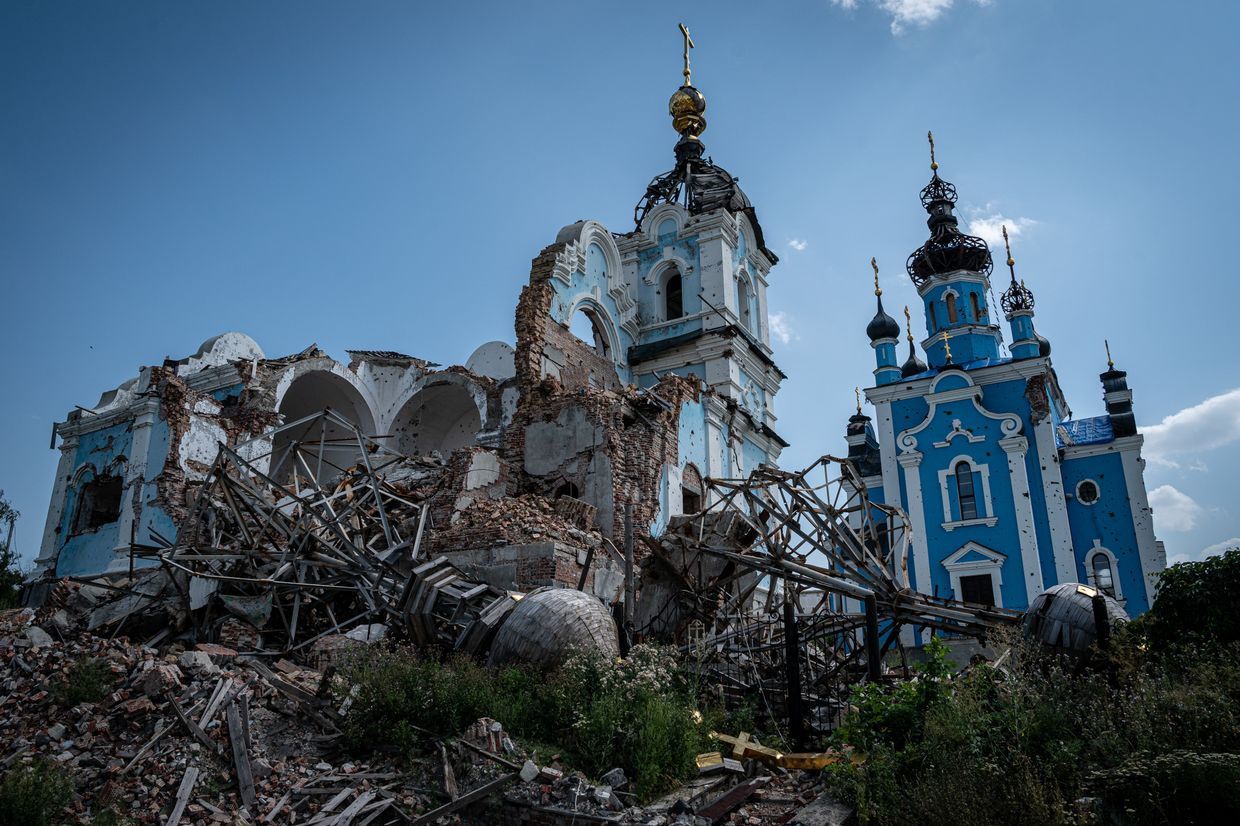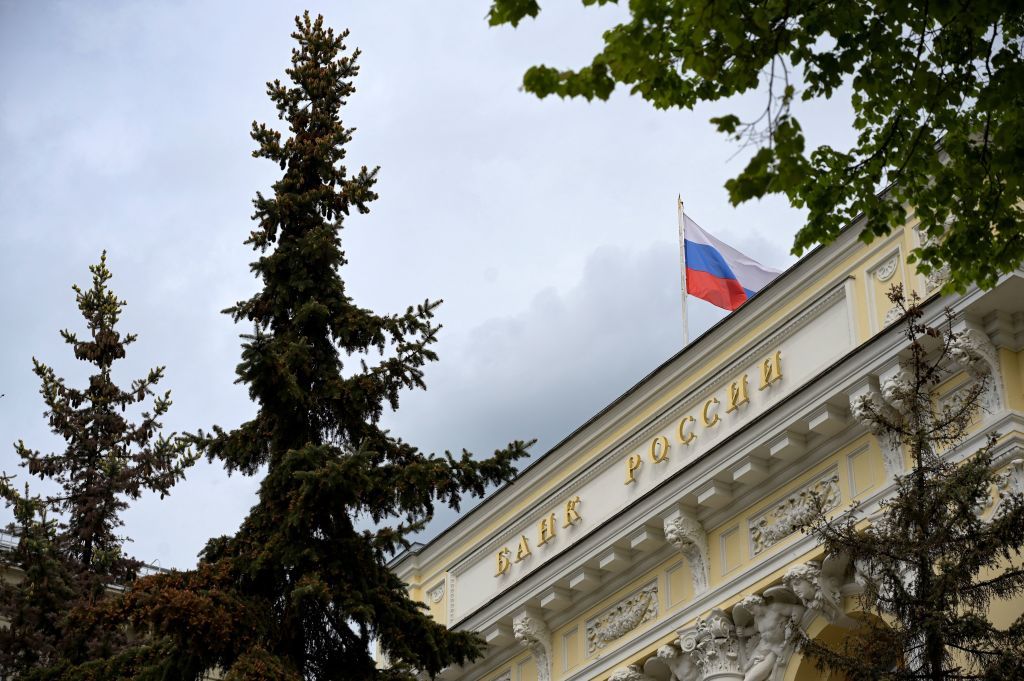Opinion: What should Ukraine do about its Russia-linked church?

Metropolitan Onufriy (C) of the Ukrainian Orthodox Church of the Moscow Patriarchate (UOC-MP) arrives for a Sunday service at a compound of the Kyiv Pechersk Lavra in Kyiv, Ukraine, on March 26, 2023. (Roman Pilipey/Getty Images)

Victor Tregubov
Patriarch Kirill of Moscow, the head of the Russian Orthodox Church (ROC), presented a "revolutionary" order on March 27: “The Present and Future of the Russian World.”
The order claims: “From a spiritual and moral point of view, a special military operation (Russia’s term for its war against Ukraine) is a Holy War, in which Russia and its people, defending the single spiritual space of Holy Rus’, fulfill the mission of "Keeper," protecting the world from the pressure of globalism and victory of the Satanist West.”
The order also claims that the “entire territory of modern Ukraine should enter the zone of Russia’s exclusive influence.”
At a rally in central Moscow just a year ago, famous Russian actor and former Orthodox priest Ivan Okhlobystin was among the first to dare call Russia’s invasion of Ukraine a “Holy War.” Akin to the mumblings of a madman at the time, this is now the official position of the ROC.
This politicization and weaponization of religion isn’t typical of Orthodoxy – the term “Holy War” sounds alien to the Orthodox ear, if not blasphemous. While the Orthodox tradition acknowledges the unavoidable necessity of defending one’s country, there is nothing holy in that. During early Byzantine times, soldiers had to undergo short penances for killing enemies in battle. To make matters worse, Russia has invaded Ukraine, another predominantly Orthodox country.
The ROC was always linked to the Kremlin, but it made an effort to reconcile the government’s propaganda with fundamental Christian doctrines. Patriarch Kirill’s absurd document cements the church’s role as an ideological puppet of the Kremlin.
This raises two important questions.
How will independent Orthodox churches respond? The ROC’s actions amount to phyletism – the conflation of church and state – which is considered heresy. Will the heads of other Orthodox churches fall in line?

How should the Ukrainian government respond? The Ukrainian Orthodox Church of the Moscow Patriarchate (UOC-MP), which is subordinate to the ROC and is not to be confused with the autonomous Ukrainian Orthodox Church (UOC), remains a major religious body in Ukraine.
Most importantly, should Kyiv restrict the UOC-MP’s influence in Ukraine, given numerous cases of its representatives supporting Russia’s war, spying for Moscow, hiding Russian troops and weapons, and creating pro-Russian paramilitary formations?
Two problems arise.
First, not all representatives of the UOC-MP are loyal to Patriarch Kirill, especially after the full-scale invasion, and it can be difficult to identify the wolf in sheep’s clothing. Officially, the UOC-MP has severed ties with its “mother,” but within the framework of Orthodox canonical law, it’s still very much a part of it.
Second, even the voluntary transition of local village parishes from the UOC-MP to the Kyiv-centered UOC has created tension and allowed Russia to accuse Ukraine of neglecting religious freedom.
It would be easier if these unfounded accusations were only coming from Russia. However, mis- and uninformed lobbyists and opinion leaders in the United States have also tried to frame the situation as a “persecution of Christians,” using it to sabotage aid for Ukraine.
Ironically, Patriarch Kirill has himself undermined much of the church’s efforts at concealing its agenda, proudly acknowledging the ROC’s role in Russia’s aggression against Ukraine. However, Ukraine’s quest to separate the wheat from the chaff and find the best way to deal with UOC-MP clergy that act in Russia’s interests without limiting religious freedom remains the real challenge.
Editor’s Note: The opinions expressed in the Opinion section are those of the authors and do not purport to reflect the views of the Kyiv Independent.












